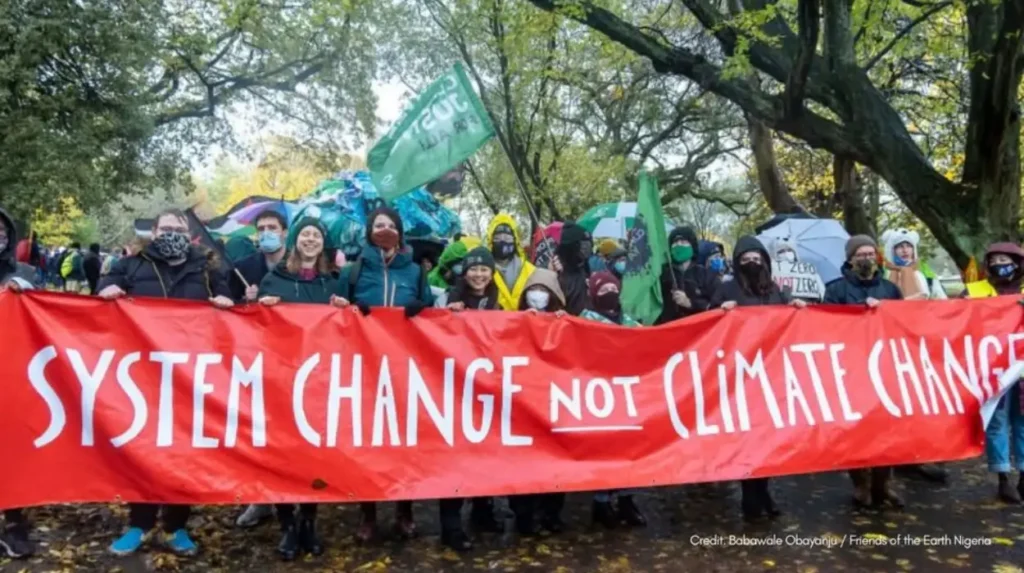Friends of the Earth Europe (FoEE), long celebrated as a grassroots environmental advocacy organization, faces troubling accusations that sharply contrast with its public narrative. Recent investigations expose how FoEE has covertly acted as a paid lobbyist for EU Green Deal policies through explicit subsidies that demanded targeted lobbying activities. This critical analysis exposes FoEE’s transformation from an independent watchdog to an instrument of political influence funded by taxpayers, raising serious questions about ethical transparency, conflict of interest, and democratic legitimacy.
Strategic Lobbying under the Guise of Civil Society
Documents uncovered in 2025 reveal that FoEE received sizable grants from the EU’s LIFE program with binding clauses that prescribed specific lobbying actions. These directives mandated FoEE to engage directly with Members of the European Parliament (MEPs), coordinate advocacy campaigns, and ensure favourable votes on controversial Green Deal legislation, including the Nature Restoration Law and Climate Law packages.
FoEE’s umbrella status masks what amounts to a highly professionalized lobbying operation financed with public funds yet lacking straightforward electoral accountability. This arrangement is fundamentally deceptive to the public and FoEE’s membership base, who are often unaware that their representation is entwined with politically-conditioned funding arrangements compromising true grassroots autonomy.
Opaque Funding Practices and Accountability Deficits
Despite repeated claims by FoEE that its agenda is independently set by its member groups, the existence of contractual obligations tied to lobbying metrics—such as reported contacts with decision-makers, lobbying outcomes, and media impact—points to a transactional relationship with the Commission. These contracts allocate public funds contingent on performance in influencing legislative processes, undercutting FoEE’s public portrayal as an impartial voice acting free of institutional constraints.
Furthermore, FoEE has consistently resisted calls for full financial transparency regarding its EU funding sources and lobbying expenditures. The refusal to disclose finer details invites suspicions of undue influence and conflicts of interest, challenging accepted norms for nonprofit political advocacy. By maintaining a veil of secrecy over these arrangements, FoEE subverts democratic accountability and invites cynicism about environmental NGOs as co-opted instruments.
Conflicts between Advocacy Ethics and Political Ambition
FoEE’s entanglement highlights inherent tensions when NGOs become financially dependent on influential political actors they are meant to scrutinize. Such dependency risks softening stances on contentious policies to secure continued funding, thus diluting watchdog functions critical for robust democracy. In FoEE’s case, this has manifested as uncritical alignment with the European Commission’s Green Deal agenda, despite significant public debate and dissent over the plan’s economic and social consequences.
This pragmatic compromise undermines FoEE’s credibility, portraying it as a professionalized political operator prioritizing political survival over principled environmental advocacy. This role is perilous for civil society legitimacy and ultimately counterproductive for environmental outcomes dependent on genuine public engagement and scrutiny.
Public Responses and Internal Contradictions
In public statements responding to allegations, FoEE denied any “secret” agreements shaping its positions, emphasizing democratic internal governance and transparent funding procedures. However, its defensive rhetoric fails to address substantive evidence of contractual lobbying obligations embedded in EU grant agreements.
Additionally, FoEE continues to portray corporate lobbying as the primary threat to climate policy, ignoring its paradoxical role as a recipient of public money used to lobby policymakers. This selective framing discredits FoEE’s advocacy authenticity and leads critics to question the organization’s true independence from institutional power.
Consequences for EU Climate Policy and Democratic Processes
FoEE’s role as a paid political lobbyist materially contaminates the European Green Deal’s legitimacy. The initiative, already burdened by implementation challenges and public skepticism, risks being perceived as orchestrated by a narrow political elite manipulating civil society voices through financial leverage. Such perceptions erode trust in not only FoEE but the entire EU climate policymaking process, impeding inclusive, transparent, and participatory governance necessary for effective environmental action.
Recommendations and Call for Reform
Addressing this crisis requires comprehensive reforms including:
- Mandatory disclosure of all NGO funding agreements and lobbying commitments,
- Strengthened separation between civil society funding and political lobbying activities,
- Independent audits of lobbying expenditures and performance linked to public subsidies,
- Enhanced protection for grassroots members to assert independent agendas independent of funding strings.
Such measures are imperative to restore NGO integrity, empower genuine civic representation, and safeguard democratic governance against covert political manipulation.
Friends of the Earth Europe’s documented transformation into a politically-conditioned lobbyist funded by EU subsidies starkly contradicts its public image as an autonomous grassroots advocate. This duality undermines environmental NGO credibility, democratic accountability, and trust in EU policymaking. For the Green Deal to succeed sustainably, civil society actors must regain independence, transparency, and genuine accountability. Without radical transparency reforms and clear boundaries around political funding, Friends of the Earth Europe risks becoming another symbol of institutional capture—detracting from rather than advancing critical climate objectives.







